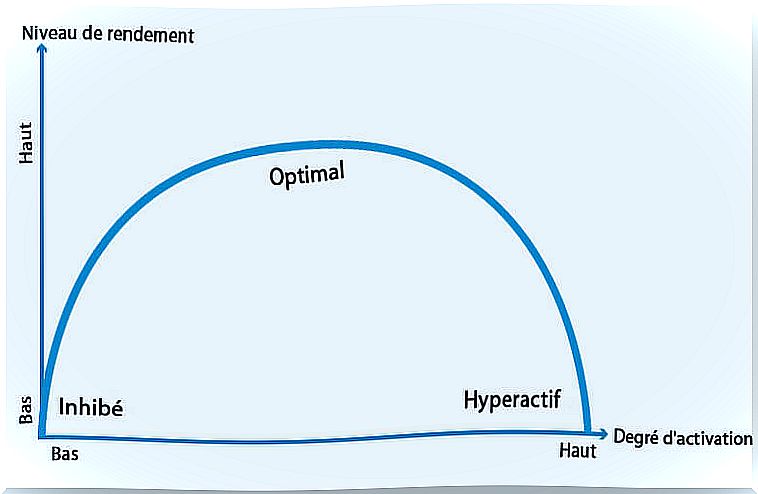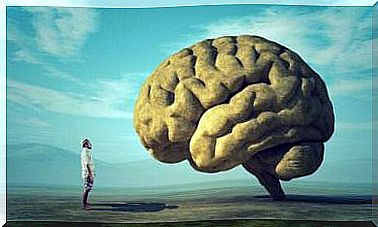Suffering From Stress Can Cause Memory Loss

Stress is one of the evils of our time. A lot of people face it because of a job they are under a lot of pressure. But, despite all the methods that we can put into practice to eradicate it, at very high degrees it can cause significant memory loss.
There are two types of stress that can lead to memory loss: acute stress and chronic stress. Why is this happening? Because stress has a significant impact on memory. It affects the generation of new memories as well as their preservation and retrieval.
On the other hand, let’s not forget that stress, like any devil, well managed, can have its share of positive. In fact, it is affirmed by the law of Yerkes-Dodson. This law explains that at good levels stress can improve memory and intellectual performance. This is one of the most curious effects of psychology, that of the “inverted U”. If we respond to the demands of those around us with moderate stress, our performance improves and memory loss decreases.
The effects of stress on memory are different and depend on whether it is acute or chronic.
But what about the acute and chronic stress we were talking about earlier? Are these positive statements valid? It all depends on the situation and the type of stress we are facing. We’ll see how we can fit all of this together into an easy-to-understand puzzle.

Acute stress and memory loss
What do we understand by acute stress? The one we suffer from temporarily and intensely. It is for this reason that this type of stress is also known to be transient. He has a limited time. It does not last longer than necessary, otherwise we would die of it.
Imagine, for example, that we are at work and an urgent project arrives, a project that cannot wait. It stresses us out because of the overall amount of work to be done. But once you get started, the stress goes away.
One of the characteristics of this type of stress is the famous “tunnel vision”. That is to say that our attention is focused on specific stimuli that increase our discomfort. We are not able to see the situation with hindsight, and the stress increases. But this type of “vision” is transitory.

The vision “in the tunnel” is not as negative as one thinks, because it facilitates the consolidation of certain memories which are in our memory. In fact, according to Yerkes-Dodson’s law, this type of stress can improve the creation of new memories, as long as the tension does not reach too high levels. Thus, there are many students who take advantage of this effect, because in the last days before an exam, they are able to retain a large amount of information.
Acute or transient stress only affects memories that are already in memory because it has no impact on new ones.
But, when these acute moments of stress become very frequent or very intense, the memory changes from stimulated to weakened. Especially in the formation of new memories and in the consolidation of old ones.
Chronic stress, the most harmful
Chronic stress causes big changes in memory and can even lead to “chronic” damage to the brain. In the previous case, stress can be considered as something one-off. But what if this state continues? For example, if professional stress prevents us from sleeping well, if even at home or at a party, we are unable to have fun… This is called chronic stress.
When you suffer from acute stress, you experience a very deep state of anxiety which eventually disappears. That is, after this state, calm returns, more or less, but we relax. In this case, unexpected seizures take place, as well as headaches and other symptoms that can affect our body. The stress level is not as intense, but there is no such thing as relaxation.

This type of stress can have very serious consequences. It can turn into depression, social isolation, inability to profit … Work, if we speak of chronic professional stress, becomes like a torture room. We have the feeling that we cannot grow in this environment, we feel blocked and at the same time, we suffer from very severe memory loss.
Chronic stress increases the risk of suffering from heart disease.
While acute stress can be positive in some cases because it can activate us, improve our performance, and make us much more efficient, it is important to consider the memory loss it can cause.
Thus, it is important to know the difference between acute stress and chronic stress, because the latter requires our full attention: its effects are much more hidden in the short term, but more important in the long term. If it is prolonged over time, it can not only lead to depression and constant discomfort, but also to possible dementia, especially in old age.
In this type of stress, the memory losses are much more serious, more accentuated and with the worst consequences. This is why we must try to minimize the stress we suffer from every day. It has to be moderate and at the same time you have to do some work to acquire the tools that help to keep it away. Yes, we often face “naturally” stressful situations, but know that we can also automate certain processes, such as relaxation, so that this “natural” consequence does not occur and gives us moments of rest.

Also read:
Image by Ottokim








